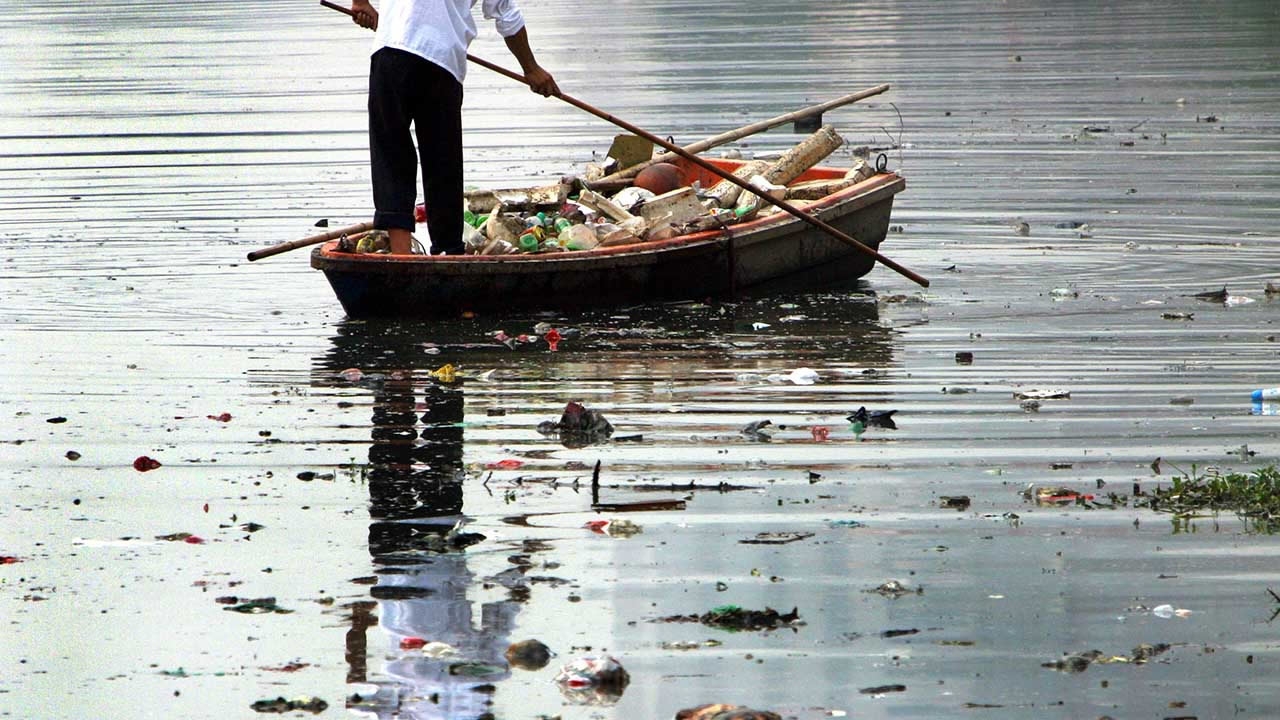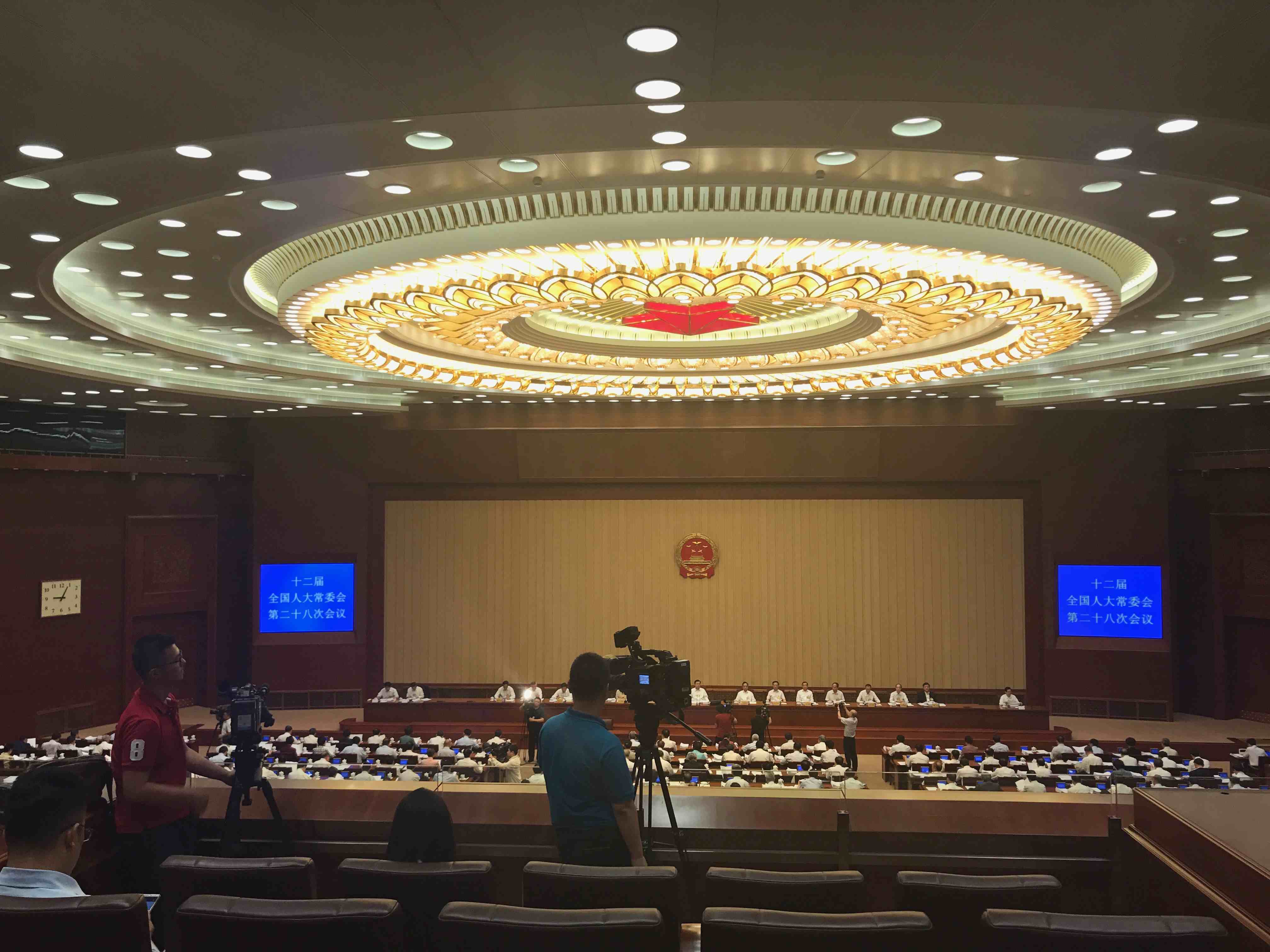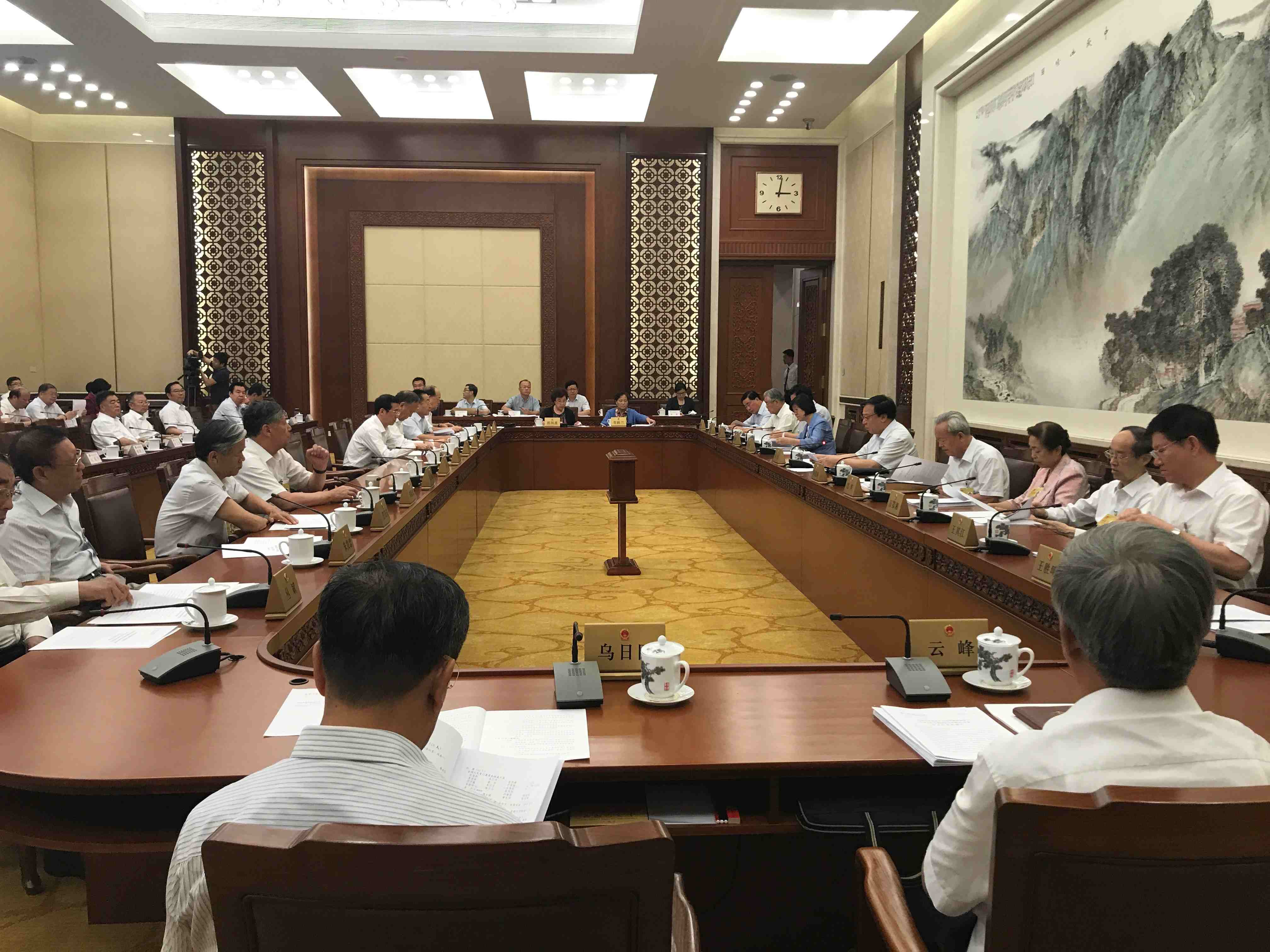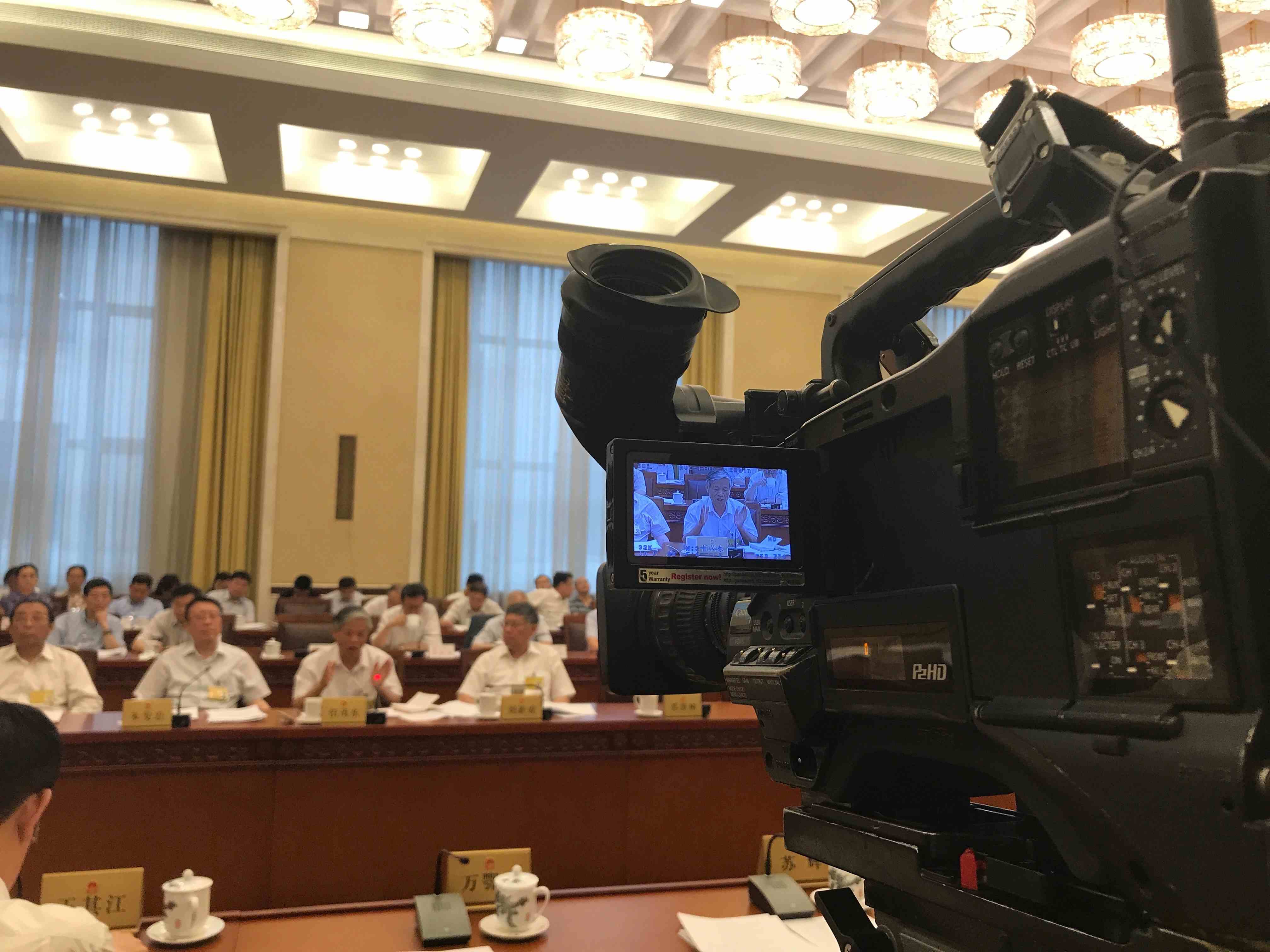
China
21:43, 23-Jun-2017
Chinese lawmakers weigh draft revision to curb water pollution

By CGTN's Hou Na
Water pollution has gripped the attention of China's lawmakers after a number of environmental incidents in China.
In April 2014, in northwest China's Lanzhou City, benzene leaked from a pipeline of a petrochemical company, causing levels of benzene in the city's tap water to reach 10 times the national standard.
Now, lawmakers are reviewing a law revision for the second time in a year.

NPC convenes its bi-monthly Session on Thursday, June 22, 2017. /CGTN Photo
NPC convenes its bi-monthly Session on Thursday, June 22, 2017. /CGTN Photo
According to the draft, chemical producers, industrial and mining zones, tailing ponds, dangerous chemical disposal sites and landfills should make efforts to prevent leakage, and dig wells to monitor groundwater quality.
The draft imposes tougher punishments, and doubles fines for offenses. Lawmaker Yang Zhen suggested that the draft should add more items to make it clear that important water resources like the Yangtze River and the Yellow River should be given extra protection measures.

Law makers hold panel discussion on the law on Thursday, June 22, 2017. /CGTN Photo
Law makers hold panel discussion on the law on Thursday, June 22, 2017. /CGTN Photo
The draft strengthens protection measures, stating that emergency response and back-up water sources should be set up in cities with single water sources.
It also would ensure that the quality of drinking water is closely monitored, with relevant information made public.

Law makers had heated discussion on Thursday, June 22, 2017. /CGTN Photo
Law makers had heated discussion on Thursday, June 22, 2017. /CGTN Photo
Lawmaker Guo Fenglian warned that people should be wary of new pollution sources. “With the rapid development of tourism, many important rivers and ponds have been developed into tourist destinations, so we should add new items in the law which would include suitable punishments for new pollution spots," she said.
The current Water Pollution Prevention Law was enacted in 1984 and amended in 1996 and 2008.
For the recent effort, lawmakers reviewed the draft for the first time at the end of last year.
The draft will be put to a vote next Tuesday .
1km

SITEMAP
Copyright © 2018 CGTN. Beijing ICP prepared NO.16065310-3
Copyright © 2018 CGTN. Beijing ICP prepared NO.16065310-3